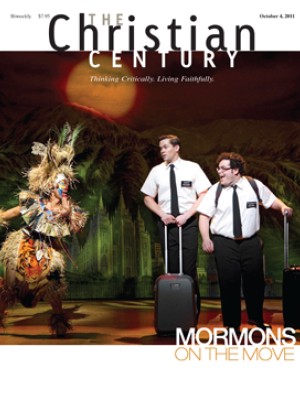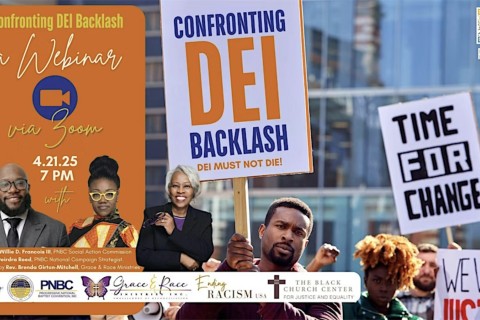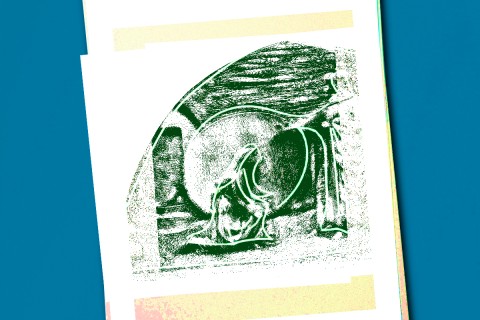Normal Mormons: A "model minority" blends in

The public affairs department of the Church of Jesus Christ of Latter-day Saints recently noted an uptick in the media's use of the word cult to describe Mormonism, even in august publications such as the New York Times and the Economist. It is probably not coincidental that two Mormons, Mitt Romney and Jon Huntsman, are running for president.
The peculiar place of Mormonism in American culture was made even more evident in a comment by Fox News host Ainsley Earhardt. Speaking in July with two other commentators about the presidential chances of Texas governor Rick Perry, she said she expected that Perry would be able to raise money from the conservative base of the Christian Coalition, especially "with Romney obviously not being a Christian." Her cohosts murmured their assent, as if it were obvious that the Mormon Romney is not a Christian.
Read our latest issue or browse back issues.
That Romney and Huntsman are Mormons is a huge stumbling block to their candidacies. Polling in June by the Los Angeles Times revealed that at least one in five Republican voters said that on principle they would not vote for a Mormon for president. An even higher number of Democrats—27 percent—claim that they would not support a Mormon.
It's not just in the arena of politics that people are suspicious of Mormons. In their 2010 book American Grace, sociologists Robert Putnam and David Campbell revealed that Mormons rank as the third-most-hated religious group in America, after Muslims (no surprise) and Buddhists (a major surprise). The study's findings also showed, however, that suspicion of minority religions decreases significantly when people have personal interactions or friendships with members of those religions. A conservative evangelical soccer mom may claim to despise Mormonism, but her qualms tend to lessen when she becomes friendly with a Mormon co-worker or neighbor.
Therein lies a problem: unfamiliarity. A 2009 LDS-sponsored study indicated that nearly half of Americans understand next to nothing about Mormons, and many have never known a Mormon personally.
On the other hand, as increasing numbers of Mormons move out of traditionally Mormon-dominated areas in the western U.S., Mormonism should become more accepted and mainstream. The LDS Church has attempted to further that trend with its "I'm a Mormon" ads. The ad campaign began with the church opening its website to members worldwide, inviting them to upload home videos describing themselves and their beliefs. It was an unexpectedly democratic move for a religion that tends to favor top-down authority and a centralized single message.
In June, the church expanded the PR campaign to include "I'm a Mormon" billboards in New York and other cities. This campaign will reach more cities this fall. The ads, which aim to show the racial and ideological diversity that exists in the LDS Church but is not always apparent to outsiders, appear to be working: the church has reported a significant boost in visitors to its website. The ads also seem to have the desired effect of thawing chilly receptions of Mormon missionaries in the cities where they have been launched. The theme of the ads may be described as, "We're normal—in fact, we're just like you!"
But can Americans expand their definition of normal to include a religion that seems so different doctrinally than the forms of Protestantism and Catholicism they're used to? Evangelical Christians, in particular, have been aggressive about pointing to the differences between Mormon and mainstream Christian beliefs. For example, during his 2008 campaign, Mike Huckabee suggested that Mormons believe that Jesus and Satan are brothers. In May, writing at Patheos.com, evangelical pastor Warren Cole Smith declared that any candidate who supported a "false and dangerous religion is unfit to serve," adding that a Romney presidency would "normalize the false teachings of Mormonism the world over."
The editorial elicited more than a thousand comments, testifying to the polarizing nature of Mormon beliefs. Some of Smith's fellow evangelicals expressed their deep suspicions of Mormonism, seeing it as a wolf in sheep's clothing, while true-blue Mormons chimed in and smugly asserted a monopoly on religious truth. Atheists and agnostics expressed a snarky wonderment that anyone could subscribe to a religion claiming that a man rose from the dead—and compounded such a fabrication with additional whoppers involving golden plates and the perils of tea drinking.
Many of Mormonism's critics fail to appreciate the ways that Mormon theology has changed through the years, often by way of the guidance that the LDS president claims to receive from God through "continuing revelation." (The teachings of a previous era are almost never explicitly repudiated, however.) For example, the doctrine that African Americans bear the "curse of Cain" is certainly not LDS doctrine today, though it was in the days of Brigham Young.
Some theological teachings are more opaque. For example, Mormon theology has traditionally dictated that human beings will become gods and that God himself was once human. An apparent disclaimer of this early Mormon teaching came when LDS prophet Gordon B. Hinckley appeared on Larry King Live in 1998 and, when asked whether Mormons believe that God was once a man, answered, "I wouldn't say that." He had given similarly vague denials the previous year to reporters from Time and the San Francisco Chronicle.
But what one LDS leader says to the media is not as reliable a gauge of the changing winds of LDS theology as the wording used in the LDS Church's twice-annual General Conference, when many worldwide Mormon leaders address the faithful by satellite or streaming Internet. In that forum, it's been rare to hear leaders talk about godhood recently unless they are quoting earlier leaders on the subject—and even that happens less frequently than it used to.
An investigation of the official LDS website confirms this trend. From 2006 to 2011, the word godhood appeared only ten times in official General Conference talks, church magazines and manuals. Of those cases, two quoted former LDS prophet Spencer W. Kimball about human beings becoming gods; one quoted former prophet David O. McKay on the subject; one cited midcentury leader Hugh B. Brown; and two drew from former apostle Marion G. Romney (a cousin of George Romney, Mitt's father). Two others referred to the "godhood" of Jesus Christ. Only one magazine piece—written anonymously—asserted that human beings "have within us the seeds of godhood," while an article about recovering from romantic breakups mentioned godhood twice as a goal for righteous human beings. Interestingly, that article was not written by a high-ranking international leader.
By comparison, church talks and materials from the 1970s and 1980s employed the concept freely in relation to the eternal destiny of men and women. As then-prophet Spencer W. Kimball said in 1976, "Our Heavenly Father has a plan for man's growth from infancy to godhood."
Does that mean that Mormons no longer believe that they can become gods? It is difficult to say. Many Mormons no longer think about the topic at all; it has become an insignificant aspect of contemporary theological expression. The idea may someday fade away, just as the church's encouragement of plural marriage—once a cornerstone not just of Mormon practice but of its belief system—has faded away.
There's no question that Mormon theology is subtly changing. The real question is how far it will bend to accommodate its host culture and where will it seek to reestablish its distinctiveness. Historians such as Jan Shipps, Thomas Alexander and Kathleen Flake have argued that whenever Mormonism has had to give up something central in order to assimilate into American culture, it has tended to compensate by hardening its position in other areas. For example, when polygamy was jettisoned in the late 19th and early 20th centuries, the Word of Wisdom (the Mormon dietary code that eschews coffee, tea, alcohol and tobacco) assumed a position of prominence. Early generations of saints had adopted a relaxed view of the Word of Wisdom, as is evident in the sanctioned presence of wine at early Mormon temple dedication ceremonies, the appearance of coffee on the list of required provisions for saints undertaking the arduous journey west to Utah, and Brigham Young's decades-long struggle to stop chewing tobacco. But once polygamy was disavowed, the Word of Wisdom became one of the most important markers of LDS identity.
In 1906, the wine of the LDS sacrament (communion) became water in a nod to the broader U.S. temperance movement, and by 1921 strict avoidance of coffee, tea, alcohol and tobacco had become not just recommended but required for Mormons seeking entrance to the LDS temple. Coincidentally, Mormons expanded their temple-building efforts abroad, began emphasizing Joseph Smith's "First Vision" and underscored the unique revelatory role of the LDS prophet. It's not that these elements were absent from Mormon theology and practice before the disappearance of polygamy, but that they were rarely front and center.
Mormon history has always revealed a tension between adapting to the surrounding culture and emphasizing distinctiveness. In the past 30 years, Mormons have become more like evangelical Protestants in their political leanings (approximately 65 percent of Latter-day Saints in the U.S. identify themselves as Republicans) and even in their theological formulations. There is far more emphasis on grace and on Christ's atonement among Mormon leaders today than there was two generations ago. However, Protestant and Catholic critics are correct when they say that Mormonism remains theologically distinctive. For example, Mormons reject creedal Christians' doctrine of the Trinity as "extrabiblical."
Mormons today are likely to stress their distinctiveness in the area of personal and family values. Even those who criticize Mormon theology often express a grudging admiration for the LDS Church's focus on family, teetotaling, tithing and missionary service. Mormon spiritual practices serve as bridge-builders even when doctrine is a point of contention. It's not difficult to imagine that some doctrines that have been the greatest sources of division are going to go the way of spotted owls even as the unique Mormon lifestyle continues to win praise.
To some extent this transformation is already occurring. During the very same summer that voters were scrutinizing Romney's Mormonism and finding it wanting, American popular culture fairly exploded with what the media called a "Mormon moment," which presented Mormonism in a generally positive light. The cheeky Book of Mormon musical found itself the toast of Broadway and brought home nine Tony awards; Newsweek published a story titled "Mormons Rock!"; and freshly returned Mormon missionary Elizabeth Smart was lauded for her evolution from kidnapping victim to mature, committed activist—a development she credits to her LDS faith.
Mormons now find themselves in the familiar situation of being on the defensive theologically and politically, but at the same time they are in terra incognita: they are not only a tolerated sect but are viewed as a model minority leading the way in preserving family values. When a group is held up as a model minority, it tells us as much about what the host culture needs as about the minority itself.
Mormonism's new cultural role is apparent in the profane but charming Book of Mormon musical (which, for the record, I saw in previews and found hilarious). Some Mormons have been anxious to clarify that the musical is not really about Mormons but about American culture's idea of Mormons. Historian Richard Bushman recently compared the production to visiting a funhouse Hall of Mirrors at a carnival: you can recognize yourself, yet it's not really you. He is quite correct about that—but the distortion itself is instructive.
Probably the most theologically flawed song in the production is "Spooky Mormon Hell Dream," in which a missionary who has abandoned his companion succumbs to the guilt he feels for breaking the rules and failing in his mission. The lyrics posit a Dantean inferno for the Mormon reprobate: "Down, down to Satan's realm / See where you belong / There is nothing you can do / No escape from Spooky Mormon Hell Dream." Lucifer is there in the Mormon hell, and Catholics and Jews are his minions. Elder Price finds himself confessing his "awful" sins (failing as a missionary, stealing a donut as a child) to his fellow travelers in this nightmarish afterlife: Genghis Khan, Adolf Hitler and Jeffrey Dahmer.
The song is side-splittingly funny, and it's augmented by sight gags, like a pair of giant dancing Starbucks cups that represent the terrible temptation of coffee. The coffee part is at least accurate. The worldview mocked by the rest of the song is a fiction: Mormons don't believe in any sort of eternal hell that resembles the one depicted in the song. In fact, one of the sticking points between LDS theology and mainstream creedal Christianity is Joseph Smith's near-universalism and his emphasis on the three levels of paradise that the vast majority of humanity will find themselves in after the final judgment. A popular Mormon folk story features Smith's teaching that even the lowest kingdom in heaven is a paradise so divine that anyone who caught a glimpse of it would be tempted to commit suicide to get there sooner. The story is probably apocryphal, but the spiritual point hits home: in the Mormon cosmology, almost everyone attains some version of heaven, even adherents of other religions.
Yet the song's existence illustrates what the host culture now requires. Throughout history, the reasons that Mormonism has been vilified have changed according to the anxieties of the day. In the 19th century, Latter-day Saints were excoriated for an allegedly lascivious sexuality. Mormon men were depicted in cartoons and antipolygamy fiction as sexual predators whose libidos knew no bounds. In the early 21st century, members of the same religion are portrayed as being sexually repressed. The creators of The Book of Mormon production apparently also need them to believe in a sinners-in-the-hands-of-an-angry-God variety of eternal punishment. In a strange way, Mormons have become the cultural arbiters of morality: the musical critiques LDS teachings on homosexuality even while showing Mormons to be some of the sweetest people you'll ever meet.
The story of what happens next in Mormonism's careful negotiations with American culture is unwritten, but the past suggests that the church will bend for the sake of assimilation. With two Mormon candidates running for president and Romney among the front-runners, such negotiations have high political stakes.






